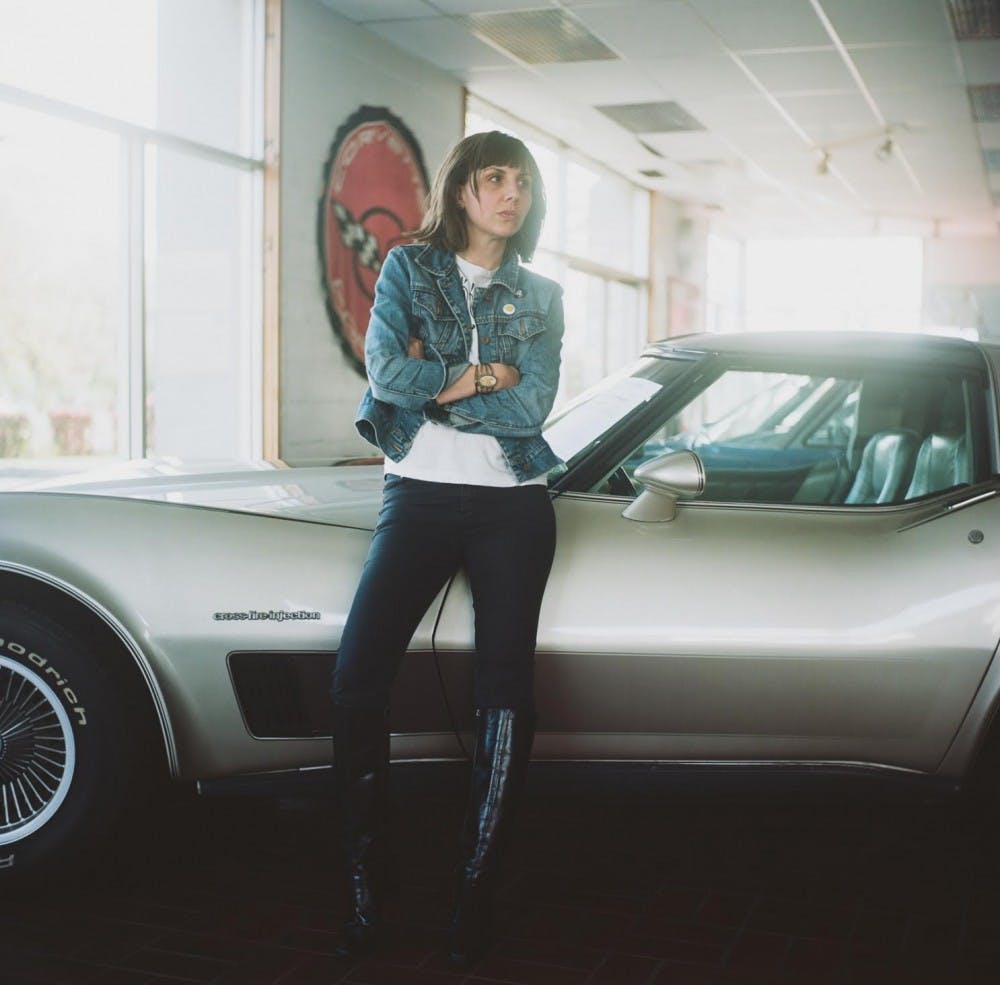Jessica Hopper, a senior editor at Pitchfork and a lifelong music lover, knows music, working as a music critic for over 19 years. She will be reading from her second book, an anthology of her work called, "The First Collection of Criticism by a Female Rock Critic," at her book release Tueday night at Flyleaf Books.
Hopper spoke to Arts & Culture Editor Sarah Vassello about feminism, music criticism and following her passion.
The Daily Tar Heel: Did you ever imagine that this is what you’d be doing professionally?
Jessica Hopper: I started writing and publishing my own stuff when I was 15, but I got my first paycheck for writing about music when I was about 16. I wanted to (write professionally) very early on — it was what I enjoyed most, and by the time I was in my late teens and I was writing for magazines and working with editors that I really loved, I knew that this is what I wanted to do. I didn’t quite have the critical acumen that I would develop later. I loved writing about music and I cared about music so deeply that I just wanted to continue to be involved in it and continue to have the conversations that I was having. Once I started writing, I couldn’t really stop, ever.
DTH: Why did you start writing music criticism and reviews?
JH: Part of what spurred me on is one of the bands I really loved, a band called Babes in Toyland, an all-female post punk band from Minneapolis, were around when I was first going to functions and I was really, really profoundly taken with them. I was obsessive about it and I would read these things written about them, these profiles and reviews, and they’d be called caustic and hysterical and all these words that we now know are kind of a code for certain kinds of women’s music — it’s kind of a gendered, weighted term. I knew it then and I knew these people were getting it wrong, and I called around to some local publication in Minneapolis, where I was growing up, and I said, "Listen, you guys are getting this wrong. I love this band. I really understand them and what their music is about, and I want to write about them." Then people would say, "How old are you?" and I’d say "15." "Have you ever written before?" "No." They’d say that they’d give me a call back if they had something for me, but of course nobody called me back.
And I thought, "Well, fuck it. I’ll start my own little magazine. I’ll start my own writing." And I did. I had all my friends write different things and I interviewed some other bands and I made a fanzine. If I was a young person now, I would have probably just made a blog or a casual website, but in 1992, that was what you did when you loved music and loved punk rock and wanted to participate in the scene. So I made a fanzine and continued publishing it for approximately 13 years. When I started doing that and people from Minneapolis and other places started reading my zine, which sold in record stores and book and fanzine stores around the country and internationally, people would say I want you to write for me at my publication. Other people telling me no basically helped me start a career.
DTH: Your book event at Flyleaf on Tuesday is also a Girls Rock NC benefit event. Why are you using your event to promote and fund this organization?
JH: In my previous book ("The Girls' Guide to Rocking"), I did a lot of events with Girls Rock camps because my previous book was about being a woman and starting a band, a how-to basically. It’s something near and dear to my heart and I want to show women not just, ‘Oh, you can start a band,' you can be a person who comments on the bands. We can occupy any role in music. Culturally, we don’t get presented with a lot of women as critical cultural authority. There’s plenty of them, but you watch music documentaries and its rare to see any of my female critical peers as the talking heads unless someone is really specifically wanting to talk about gender in relation to music, then they call women.




